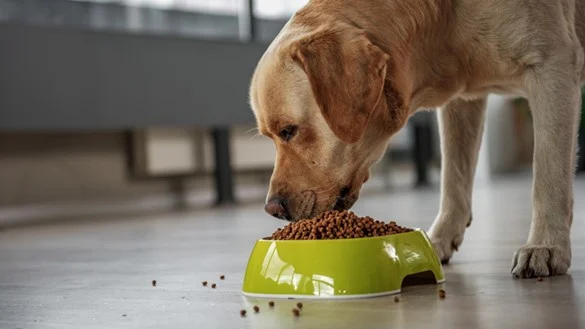It is your responsibility as a pet owner to ensure that your companion is healthy, happy, and receiving adequate nutrition. One of the most important aspects of pet care is nutrition. Feeding your pet a balanced and nutritious diet can help to prevent illness and keep them in optimal health. In this article, we’ll discuss the basics of pet nutrition and provide tips for diet planning.
What Is Pet Nutrition?
Pet nutrition refers to the study of the nutrients that pets need to maintain good health, as well as the process of providing these nutrients through food. A balanced diet for pets should contain the right amounts of protein, fat, carbohydrates, vitamins, and minerals to meet their individual needs. Just like humans, each pet has its unique nutritional requirements based on its age, size, breed, and activity level.
Protein
Protein is an essential nutrient for pets, as it helps to build and repair muscles, organs, and tissues. It also supports the immune system and aids in the production of hormones and enzymes. Dogs and cats need a higher percentage of protein in their diets than humans do, as they are carnivores and require a source of animal protein to meet their nutritional needs. The best sources of protein for pets include meat, fish, eggs, and dairy products.
Fat
Fat is another important nutrient for pets, as it provides energy and helps to maintain healthy skin and coat. It also aids in the absorption of fat-soluble vitamins such as A, D, E, and K. However, too much fat can lead to weight gain and obesity, which can be harmful to your pet’s health. The best sources of fat for pets include fish, poultry, and plant-based oils such as olive oil or canola oil.
Carbohydrates
Carbohydrates provide energy for pets, but they are a non-essential nutrient. Dogs and cats can obtain all the energy they need from protein and fat, so carbohydrates are not strictly necessary in their diets. However, some carbohydrates can be beneficial for pets, especially those with high-fiber content such as fruits, vegetables, and whole grains.
Vitamins And Minerals
Vitamins and minerals are essential for maintaining good health in pets. They support many bodily functions, including the immune system, bone growth, and vision. The best sources of vitamins and minerals for pets are fresh fruits and vegetables, as well as high-quality pet foods that are fortified with vitamins and minerals.
Diet Planning For Pets
Now that we’ve covered the basics of pet nutrition, let’s talk about how to plan a healthy diet for your furry friend. The first step is to choose a high-quality pet food that meets your pet’s nutritional needs. Look for pet foods that have been formulated by a veterinary nutritionist and are labeled as complete and balanced. You should also consider your pet’s age, breed, and activity level when selecting pet food.
It’s important to read the ingredients list on pet food labels to make sure that the food contains high-quality sources of protein, fat, and carbohydrates. Avoid pet foods that contain fillers such as corn, wheat, and soy, as these can be difficult for pets to digest and may contribute to health problems.
In addition to choosing high-quality pet food, you can also supplement your pet’s diet with fresh fruits and vegetables. These can provide additional vitamins and minerals that your pet may not be getting from their pet food. However, it’s important to avoid feeding your pet foods that are toxic to them, such as grapes, onions, and chocolate.
If you have a pet with a health condition, such as diabetes or kidney disease, you may need to make special dietary considerations. Talk to your veterinarian thousand oaks about a diet plan that is appropriate for your pet’s specific needs.

